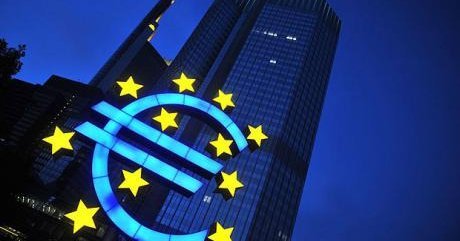Two sides of the war
The 1996 movie “Last Man Standing” (in which Bruce Willis plays two gangs against each other) displayed the following tagline: “There are two sides to every war, and John Smith is on both of them.” Much the same could be said about Mario Draghi, the President of the ECB. On the one hand, he is thoroughly engaged behind Merkel’s pledge for weak euro-area members to find their way to recovery through structural reforms, as he prevents the ECB from relieving the pressure on Spanish and Italian yields. On the other hand, he argues that the ECB’s mandate is to preserve the euro and hence says he is ready to “do whatever it takes” to do so. The Draghi dilemma is the following: he knows that the euro crisis results from the long-term accumulation of imbalances (mainly in competitiveness and trade) within the euro area, which can only be solved through structural reforms. But he also knows that the lack of short-term action increases volatility (due to fears of banking and/or sovereign default), and hence Europe’s vulnerability to minor shocks.
What the ECB can do…
In theory, the ECB can do anything it wants, as it is an independent institution with unlimited cash, a precise mandate (maintain inflation in the euro-area at “below but close to 2%”) and a decision-making system based on simple majority voting. However in practice, the ECB Governing Council only decides by seeking consensus among its members. This generally favours the status quo, especially when shocks impact countries in different ways (which is currently the case). The recession in weak euro-area countries requires potentially exceptional policy moves (similar to what the Bank of England currently does), but these might increase inflation in core euro-area countries. Hence, overall the crucial question is one of interpretation of the ECB mandate: Article 125 TFEU explicitly prohibits ECB government bond buying, but this rule makes no sense if the euro breaks up. Hence, at what point do the threats to the euro’s survival become serious enough to justify breaking a fundamental ECB rule? The answer to this question is profoundly subjective given the current market volatility. In addition, in order to avoid breaking EU law, Treaties would have to be reformed. The delightful years of Lisbon Treaty negotiations remind us how painfully long and uncertain this process can be. This fails to bring about any radical response to short-term vulnerabilities and increases the probability of one or several countries leaving the euro.
Hence, if Mario Draghi is honest about his commitment to “do whatever it takes” to preserve the euro, he will not wait for EU leaders to change the treaties. As the crisis goes, the mighty German financial firepower is increasingly dwarfed by potential full-scale Spanish and Italian bailouts. If the crisis goes as far as this, then Mario Draghi will effectively be the last man standing, with his unlimited source of cash. Within the ECB Governing Council, the main opponent to ECB intervention is unsurprisingly the Bundesbank governor Jens Weidmann. But recently another German (Jörg Asmussen, member of the ECB Executive Board of the ECB) brought his backing to Draghi’s bond-buying plans. Politically, Draghi will only be able to act if (a) he finds a consensus within the ECB, or (b) Angela Merkel gives her implicit backing to ECB intervention, which seems unlikely to happen before the 2013 German elections.
…which doesn’t mean it should.
The ECB can indeed end the crisis today, but this doesn’t mean it should. The crisis has profound structural roots and arose from an incomplete EMU structure and an initial ‘misunderstanding’ between States about what the euro entailed. Several former communist countries have criticised bailouts as an easy way to delay the radical reforms they themselves had to implement in the 1990s. Because crises are painful, they force you to make radical choices. The danger of ECB intervention is that it would delay a crucial choice Europe needs to make: how to adapt its cherished social model to the new global economy. European economies might start recovering after a massive ECB intervention, but this can also trigger accelerating inflation. These debates are crucial for the future of Europe. As he is unelected, Mario Draghi is right not to meddle in them and only focus on the ECB’s mandate. For the rest, this is precisely what we need: the election by universal suffrage of European executives and Europe-wide political parties and debates (which are already happening). If ECB intervention is necessary to solve the crisis, it shouldn’t divert Europeans from the crucial choices they are facing. As the last man standing, Mario Draghi has difficult choices to make, but unlike for Bruce Willis these choices luckily don’t include shooting everyone. For now.

Follow the comments: |
|
